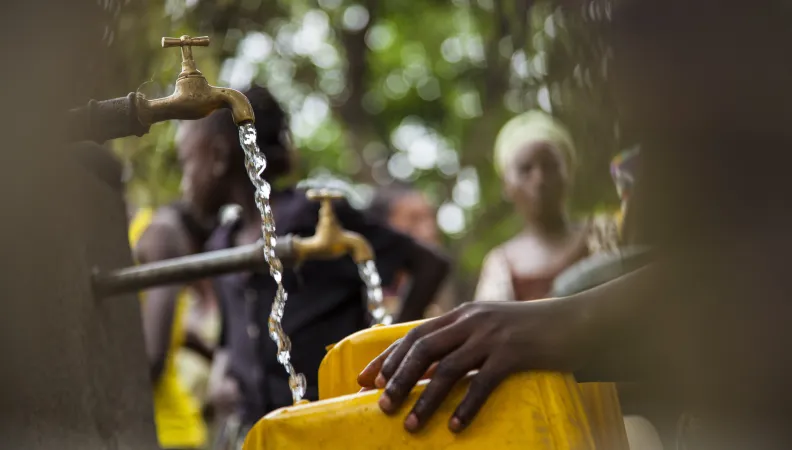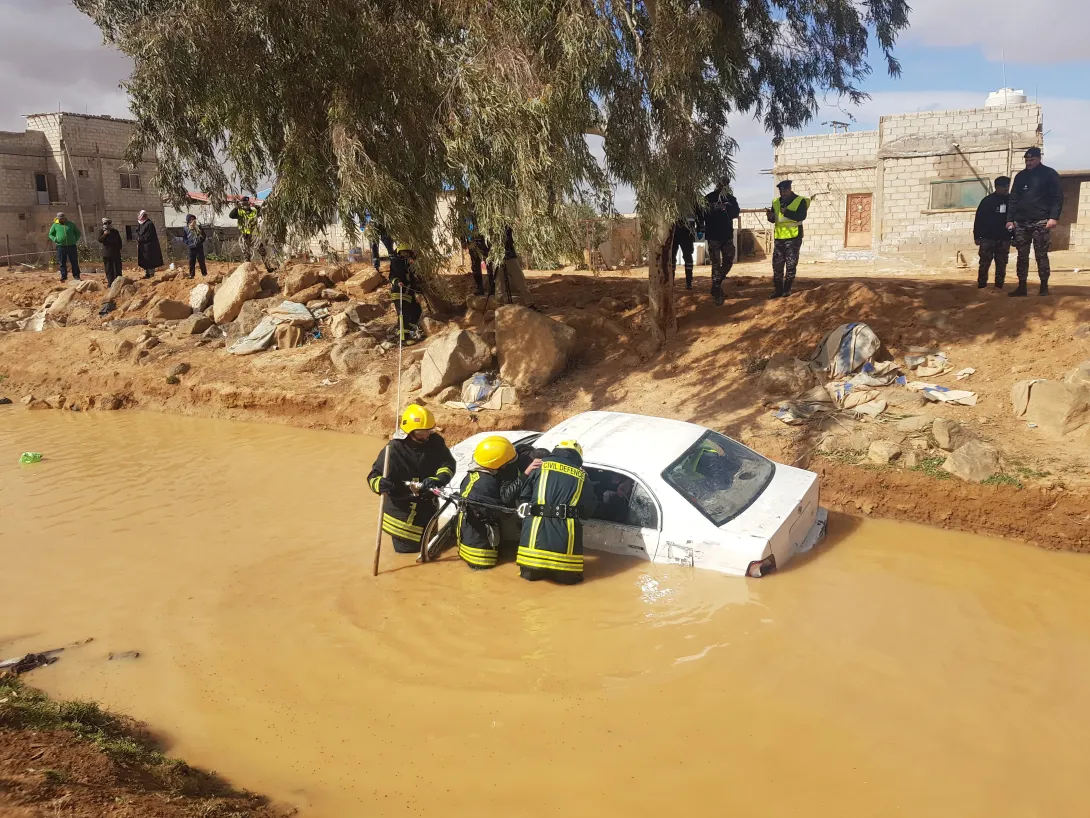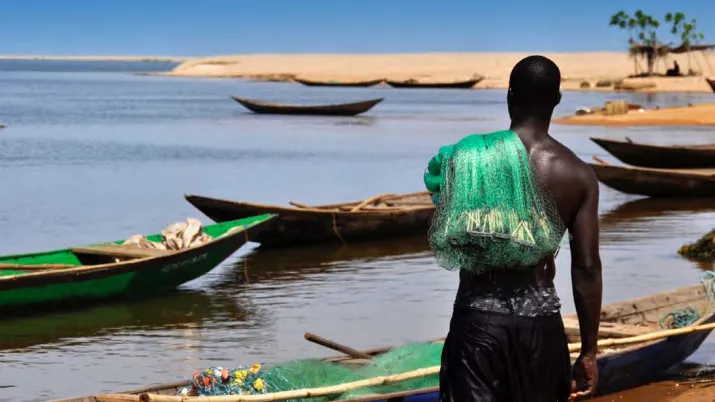Share the page
Promoting water access and management

Water is a global public good that is central to food security, biodiversity, health and peace. Access to water and decent sanitation is a human right. Every person has the right to sufficient, continued, safe, acceptable and affordable access to water for personal and domestic use.
Managing water resources and guaranteeing access to water and sanitation services are major challenges:
- On a global scale, the use of water for agriculture/livestock, industry and domestic purposes has increased by almost 1% a year since 1980 due to population growth, economic development and changing consumption patterns
- On average, agriculture accounts for 69% of water use, industry for 19% and domestic water consumption for 12%. Domestic water use, however, has seen the strongest growth (+600% over the past fifty years)
- Floods could threaten up to 20% of the world’s population by 2050
- In 2020, two billion people did not have access to high-quality drinking water at home, and almost half of the world’s population did not have adequate sanitation
Through our projects, we aim to support shared governance of water resources, foster inclusive and sustainable water and sanitation services, and address water-related risks.
2 billion people were living in water-stressed countries.
In 2021, over two billion people were living in water-stressed countries. With climate change and population growth, this situation is expected to increase in certain regions (WHO). In 2022, 2.2 billion people did not have access to safely managed water services.
Our strategic priorities
By its very nature, water is a shared resource that must be balanced between ecosystems, environments, species, and the various uses that people make of it. Climate change increasingly jeopardises the availability of resources and the adequacy of infrastructure. Therefore, reconciling ecosystem protection, human needs and human protection is one of the main challenges of sustainable development. Our work focuses on two key areas:
- Strengthen shared governance of water resources and inter-institutional cooperation: We support the development of shared and inclusive governance in the management of water resources by promoting coordination between public, private and civil society stakeholders. This includes structuring public policies at national and local levels, setting up regulatory mechanisms in relevant sectors, and creating legal and regulatory frameworks to ensure sustainable and equitable water management.
- Integrate social, environmental and economic considerations in water and sanitation services: Our work helps to guarantee universal and equitable access to drinking water and sanitation, while ensuring that infrastructure is adapted to local technology, energy and maintenance needs. We focus on involving local people in our projects, creating sustainable economic models, and supporting stakeholders in managing water-related risks (flooding, drought) through warning systems, action plans and nature-based solutions for preserving aquatic ecosystems.

The blue economy
We have a number of projects aimed at developing the blue economy and protecting marine and coastal ecosystems. These ecosystems are the blue lungs of our planet. They store carbon, produce half the oxygen we breathe, promote global food security, and contribute to the development of many economic sectors that generate growth and jobs.
Our framework for action
The need for sustainable and concerted management of water resources is reflected across 13 of the 17 Sustainable Development Goals (SDGs), in particular SDG 6 (clean water and sanitation), SDG 13 (climate action), SDG 14 (life below water) and SDG 15 (life on land).
With population growth and climate change affecting temperatures and rainfall, sustainable management of water resources is a growing challenge. At the United Nations Water Conference in March 2023, many countries recognised the scale of these challenges and committed $300 billion to reduce global inequalities.
Our work aligns with France’s aims and international strategy for water and sanitation (2020–2030). It also aligns with international agreements such as the Helsinki (1992) and New York (1997) Conventions, which are the international legal framework for the shared use of water resources, enabling better management of transboundary waters.
Our services in this area
As climate change accelerates, access to water has become increasingly uncertain. Knowing that water is key to viable and sustainable lifestyles, we leverage specific expertise through our projects to ensure good water management across all relevant sectors. Our services focus on three main areas:
- Strengthen governance and management of water resources: We help structure public policies at national and local levels by coordinating interministerial public policies, auditing and assessing public policies, as well as creating integrated resource management strategies across sectors and strategic planning tools. We also help to introduce regulations in all relevant sectors through legislation and regulations, the setting up of regulatory bodies, capacity building, and the formalising and monitoring of agreements.
- Improve access to and the quality of water and sanitation services: We help implement equitable drinking water and sanitation services through public participation, technical and economic audits of water and sanitation services, balanced investment plans, suitable equipment and infrastructure, and business models. We also support stakeholders in improving the delivery of water and sanitation services by offering training and capacity building plans for service operators, support for formal or informal operators through capacity building or access to finance, awareness-raising campaigns, digitalisation of services, and investments to increase the performance or scope of water and sanitation services.
- Improve resilience to environmental risks: We help coordinate the management of transboundary basins by improving access to existing data; setting up water information systems and basin and sub-basin action plans; establishing the legal status and budgeting of basin management bodies; and preserving and restoring water resources. We also support risk prevention and management initiatives that strengthen warning and response mechanisms for water-related natural disasters, raise awareness, and develop a risk culture among authorities and populations.
Our projects
Key figures
- 9 ongoing water and sanitation projects
- 17 countries of operation
- 13 projects in development

